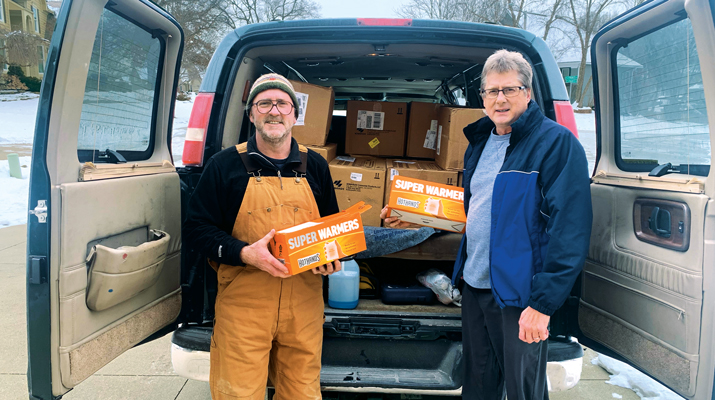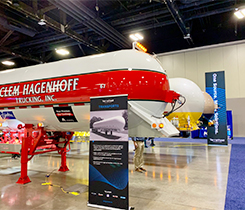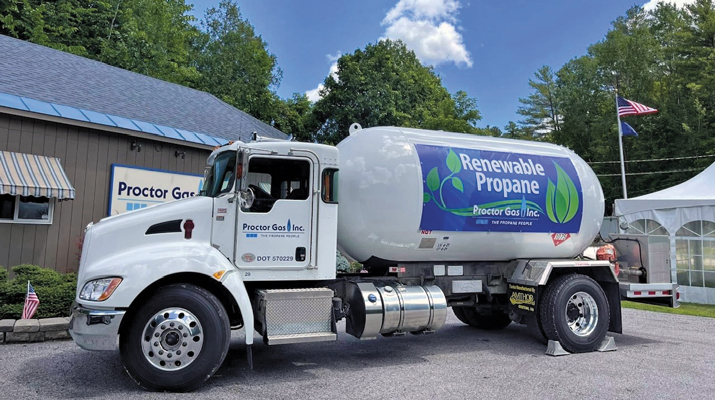Cochin reversal project creates pipeline pressures
Forty percent of Minnesota’s propane is brought in through the Cochin Pipeline, according to the Minnesota Propane Association’s (MPA) Roger Leider. That’s roughly 160 million annual gallons accessed from a single source.
Unfortunately for the propane industry in Minnesota, as well as the six other states that have direct access to Cochin, the pipeline will no longer be a supply option starting in mid-2014. Kinder Morgan Energy Partners LP, which runs the pipeline, is currently modifying Cochin to move light condensate westbound from a new terminal in Kankakee County, Ill. Kinder Morgan is connecting Cochin in Kankakee County to Explorer Pipeline Co.’s pipeline, and product will instead flow toward terminals near Fort Saskatchewan, Alberta, Canada.
Kinder Morgan announced an open season for the reversal project about 18 months ago, so suppliers and retailers have had time to make preparations. Still, the industry around Cochin continues to adjust, and it’s actively searching for alternative propane sources for the 2014-15 heating season.
“I think there is probably going to be a mixture of answers for people depending on where they’re located,” says Leider, executive director of MPA. “Some may find a terminal off the [Mid-America Pipeline] and pull some product there. Maybe the people who have rail facilities are going to beef those up.”
But will rail make up for a lost lifeline like Cochin? How will other pipelines be impacted? And what effect will this transition have on the region’s ability to heat customers next winter? These are just a few of the questions to which the industry awaits answers.
Proactive for propane
One company that’s taken a lead in developing solutions to Cochin’s reversal announcement is CHS Inc. CHS signed agreements to secure additional propane rail supply for customers, investing more than $18 million to expand propane rail terminals in the region by the 2014-15 heating season.
Some of the latest CHS investments are securing exclusive, long-term throughput agreements, adding propane storage and rail services, and expanding service agreements with Canadian Pacific Railway and Burlington Northern to serve two propane terminals in North Dakota, two in Minnesota and a new terminal that will serve western Wisconsin and eastern Iowa.
“CHS has worked diligently as an enterprise and with outside parties to develop an infrastructure we feel we could adequately supply our existing and future customers, while being a good community steward,” says Drew Combs, CHS vice president of propane.
Combs says the steps CHS has taken will provide enough gallons – and then some – to replace the volume on the Cochin system typically supplied to CHS customers.
“We feel confident that we will supply our customers while potentially assisting additional propane for counterparts we are working with, as well,” he says.
One concern Combs has is how other pipeline systems in the region, such as the Mid-America Pipeline (MAPL), will be affected. He suggests others might be of the belief that they can simply shift their supply to these assets. But too many suppliers shifting to them could present supply problems.
“This is like throwing a rock into a very small pond,” Combs says. “There’s going to be a ripple effect at the end of the day, and it will affect customers who don’t typically associate with Cochin.”
Steve Sargeant, general manager and vice president of Minnesota retailer Lakes Gas, has similar concerns.
“It may put pressure on [MAPL] because you can only run so many gallons through a hose so fast,” he says. “I’m not sure what [MAPL’s] full capacity would be, but it’s going to be like a beehive with retailers trying to find where their source of honey is at.”
Rick Rainey, vice president of public relations at Enterprise Products Partners LP, which owns MAPL, says Enterprise’s ability to serve suppliers who’ve sourced Cochin is dependent on the market’s needs.
“We have infrastructure in place capable of developing propane volumes as needed,” he says. “It will all depend on what the market wants.”
Reliance on rail
Considering other pipelines could be affected, Lakes Gas has been active developing new propane sources.
Sargeant says about 20 percent of Lakes Gas’ propane is sourced from Cochin each year. The 20 percent is nowhere near the 95 to 100 percent reliance Sargeant speculates some western Minnesota retailers have on Cochin. But even a 20 percent hit has forced Lakes Gas to look elsewhere.
“We were probably being supported greater by rail than some others,” Sargeant says. “We’ve got some rail assets out in the eastern corner of North Dakota that will be in a position to help us. That’s a little ways from Benson, [Minn.], where the best hub is going to be shut down, but a private party has purchased the assets and will have [propane] brought in by rail.”
The company to which Sargeant refers is Alliance Energy Services. Alliance signed an agreement to acquire Kinder Morgan’s Benson terminal for $5 million. The terminal has supplied more than 75 million gallons per year via delivery from Cochin, and the terminal there has a storage capacity of about 1.4 million gallons.
“[Benson] is the only terminal that’s strongly feasible to build into a rail terminal,” says Jason Doyle, president of Alliance Energy Services. “Others are just too far from a rail siting. There’s going to have to be some track built, but [the terminal] is within 50 yards of the rail siting.”
According to Doyle, Alliance will not be able to bring in as much propane as Cochin did to the terminal. Few, if any, rail systems can match a pipeline’s abilities, though.
Instead, Doyle sees the future Benson terminal as one of several rail solutions that meet the region’s needs.
“It’s going to take a few different rail-unloading sites,” he says. “The terminal can load 150 trucks a day. It’s really more the input coming in from rail and how fast you can unload that gas and get it into storage.”
Supply shift
Although Cochin’s reversal is an inconvenience of sorts for suppliers, Kinder Morgan’s flow reversal on the pipeline speaks to a unique opportunity.
“The shale development has really changed the way products are flowing across the country,” says Karen Kabin, vice president of business development at Kinder Morgan.
Leider echoes Kabin’s sentiment about the supply shift.
“I’ve been at this for 40 years, and I haven’t see anything quite like this – not since the disruptions we had during the oil embargo in the 1970s, when we would see allocations and limitations of what you would buy,” he says. “Not since then has there been something that has affected us this greatly.
“With the shift of product around the world and propane in the United States, there was a need to push more product through the pipeline to Ontario or over by Detroit. Now, with the advent of the Marcellus [basin] and the gas they’re getting, the need isn’t quite there. It’s more like they have gas to send the other way. The whole dynamics have changed.”
Considering dynamics are changing rapidly, Leider says MPA has taken on the responsibility of keeping its members informed. In addition, the association has posed questions at regional meetings over the last year to encourage suppliers and retailers to think hard about where they source their propane and how they’ll respond to Cochin’s reversal.
“We’ve always brought the topic up and asked how would this affect you,” Leider says. “Even if they’re a company that did not draw their product off the Cochin line, where do you think those drawing from Cochin are going to get their product? They’re probably going to go to where you’re drawing your product.”
Other questions MPA asks its members to consider: What if a rail terminal can’t provide product in the middle of winter? Have you considered adding storage capacity? How will your pricing structure change?
“[Pricing] is the one thing I think people are moving on and finding out just how it’s going to affect them,” Leider says. “I think most people, one way or another, are dealing with it.”
















